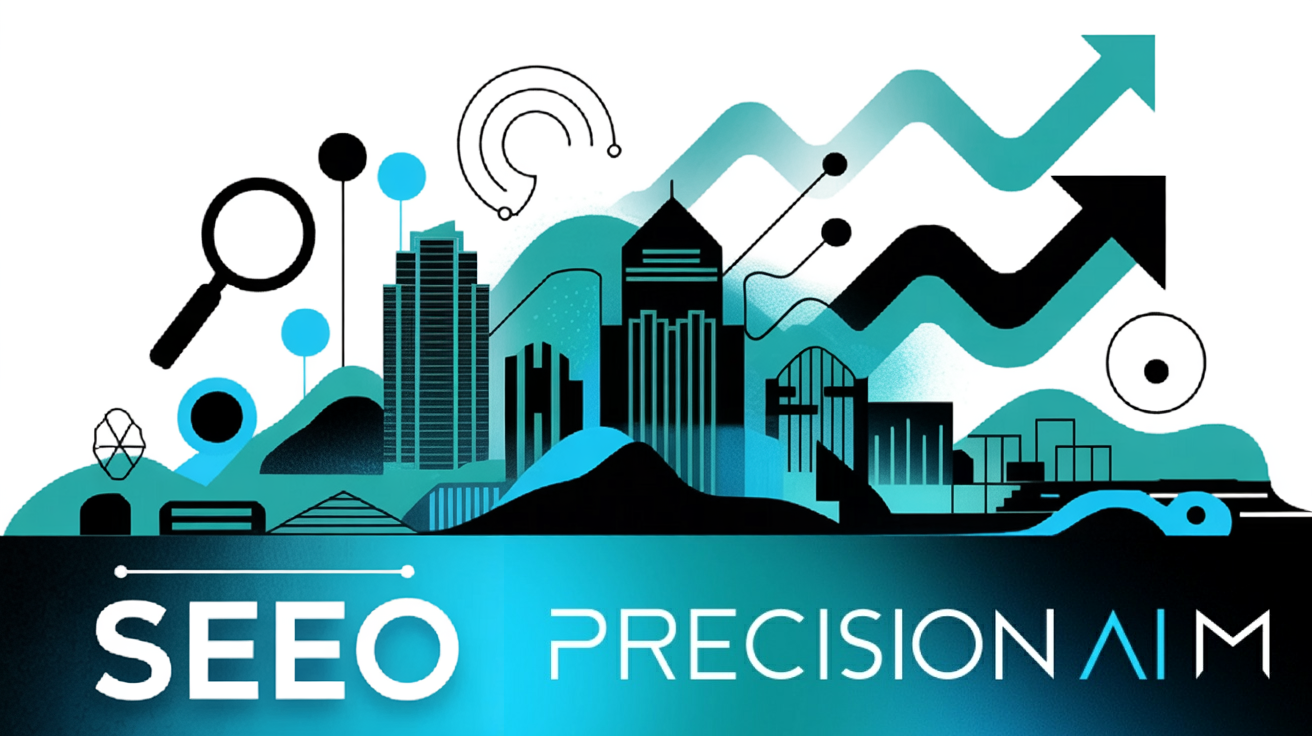Why do marketers and businesses seek Ahrefs alternatives?
Spend any real time in the SEO world and you’ll quickly spot something: while Ahrefs is constantly praised for its analytical muscle, a surprising number of marketers are searching for alternatives. But why move away from such a powerhouse? It usually comes down to cost, usability, specific needs, or scalability.
Cost concerns and affordability
Let’s tackle the budget elephant in the room. Ahrefs’ premium pricing can put substantial pressure on freelancers, start-ups and smaller businesses. The entry-level plan isn’t exactly friendly to limited budgets, and their credit-based system can feel like a straitjacket for those needing features every day.
Alternatives are stepping up to fill the gap: SE Ranking, Moz Pro, and Ubersuggest deliver lower monthly costs; free tiers, like the one from SEO PowerSuite, let new players access meaningful SEO tools. Suddenly, professional-grade SEO is much less daunting for most wallets.
Workflow simplicity and usability preferences
Ever felt lost in a sea of features you don’t actually need? Many find Ahrefs overwhelming when they just want quick, focused SEO support. Simpler platforms—Ubersuggest and SE Ranking come to mind—cut the clutter and keep core features front and centre.
That lighter UI can mean a world of difference, especially for solo marketers or small teams wanting to get things done without navigating a labyrinth of analytics.
Addressing feature gaps or platform overcomplexity
Sometimes, breadth isn’t everything. Ahrefs is comprehensive but even it cannot meet every demand. Alternatives like Similarweb add market intelligence Ahrefs lacks; SurferSEO leads on advanced content optimisation. On the other hand, a niche tool, without unnecessary complexity, can be perfect if your needs are straightforward.
There’s power in picking a tool that’s just right—whether it’s highly specialised, or simply less overwhelming.
Interest in managed and automated SEO content services
What if you want SEO handled without lifting a finger? Managed solutions—blending AI with human expertise—are growing fast. These platforms take over strategy, execution, and ongoing improvements, freeing businesses from day-to-day SEO battles.
For overextended teams or those lacking in-house skills, this “done-for-you” model is a game-changer.
Scalability and flexible user management
As agencies and growing businesses expand, inflexible plans can become a real headache. Unlike Ahrefs’ limits, alternatives often feature multi-user access, bespoke permissions, and extensive reporting—crucial for handling scale and complex team structures.
With this flexibility, the same tool evolves alongside your business needs.
Matching tools to unique needs
Here’s the big secret: there’s no one-size-fits-all solution in SEO. The landscape is packed with options, each aligned with different budgets, features, and team requirements. The real win? Finding the tool that fits your business aspirations—whether that’s cost, capability, or pure simplicity.
Criteria for evaluating Ahrefs alternatives
So, you’re searching for an Ahrefs alternative. But what makes one tool a better fit than another? Getting the right blend of technical prowess, ease of use, and genuine value can make all the difference to your SEO outcomes.
Technical features and depth
First up—are the analytics actually robust? An elite SEO tool is built on data sophistication and accuracy.
With backlink analysis, you’ll want access to a large, regularly updated database. Add anchor text breakdowns and toxic link detection for a healthier site.
For keyword research, it isn’t just about quantity. Accurate volume, keyword difficulty, and detailed SERP analysis matter, as does the ability to surface long-tail or high-intent keywords.
A comprehensive site audit is now essential. It must identify technical errors, flag on-page issues, and address Core Web Vitals. Automated options plus tailored reporting can save you hours.
Competitive analysis completes the picture. Alternatives should let you compare against rivals—keywords, backlinks, and traffic sources—to fuel strategic decisions.
Usability, onboarding, and learning curve
Ever felt lost in a sea of settings? Good tools feel clear, with dashboards and controls that make sense.
Fast onboarding matters—interactive walkthroughs and an up-to-date help centre mean fewer headaches. Accessible support channels—like live chat and community forums—make it easy to get answers.
It’s important for teams with mixed experience to have real help at hand.
Pricing, scalability, and value for money
How much flexibility will you get? Monthly or annual options, freemium deals, even lifetime licences for small operators—these matter.
Beware of hidden charges—extra payments for essential reports or onboarding add up over time. Agencies should look for multi-user access and APIs.
Consider the full cost: setup time, ongoing effort, and how plans scale as you grow.
Maintenance, support, and integration
Imagine if routine SEO work ran itself—automated audits and scheduled alerts free you up. Linking with Google Analytics or WordPress is facilitative of seamless workflows.
Long-term support means users can adapt and thrive. Managed or AI-driven solutions need strong data protection—think GDPR compliance—to safeguard sensitive information.
The right Ahrefs alternative delivers actionable insights, fits easily into your workday, and scales alongside your ambitions.
1. SEOSwarm by Precision AI Marketing
Core features and differentiators
- Full AI-human hybrid management
Uses proprietary AI for campaign automation alongside expert oversight, dramatically reducing manual work and adapting quickly to Google’s latest algorithms. - AI-driven research and content
Spots keyword and competitor opportunities, produces optimised briefs, then auto-publishes directly to your website—so improvements happen quietly in the background. - Technical SEO automation
Runs audits, solves technical issues, and integrates with your blog for seamless deployment—almost no user involvement required. - Content quality by default
Enhances EEAT, embeds schema, and strengthens internal links. Multimedia and context upgrades come built-in, not as afterthoughts. - Unique value vs SaaS tools
Blends hands-off automation with tailored strategy, providing better quality and faster results than typical DIY SaaS platforms.
Here's the thing: SEOSwarm isn’t just about automation—it really orchestrates every part of SEO for you. Businesses get technical fixes, future-proofed content, and ranking improvements, without needing to constantly adjust or micromanage.
Pricing, accessibility, and scalability
Let’s talk practicalities. SEOSwarm runs on a simple monthly subscription, with entry plans around £100–£110, scaling up according to your size and content needs. Now, compared with managed agency services—which can soar from £500 to well over £5,000 a month—you’re looking at a tremendous saving: up to 80–95% over traditional agencies for similar results.
And it’s flexible. Solo marketers, agencies or growing teams can all add unlimited users or brands, keeping expansion frustration-free. Rapid onboarding with automatic publishing lets organisations boost their SEO presence quickly, skipping the tedious setup and training so many platforms require.
Limitations and best-use scenarios
- Trade-off: full automation
Campaign tweaks aren’t manual—SEOSwarm handles everything technical and content-wise, so you lose granular control. - Ideal for busy teams
Best for growing businesses, agencies, or marketers chasing high ROI with minimal time sunk into SEO admin. - Automation use-cases
Set technical audits and blog scaling on autopilot; free staff for strategy or creative work instead. - Comparison to traditional SaaS
You’ll get more automation and baked-in quality checks, but less dashboard customisation.
So, what does this look like in real life?
Imagine a marketing agency managing several clients at once. SEOSwarm lets them ramp up content and improve SEO across sites—without draining team hours or requiring extra hires. Clients receive fresh content, technical upgrades, and ongoing refinements, all hassle-free.
For businesses that are time-poor and outcome-focused, SEOSwarm is a market-leading alternative to both DIY SaaS and expensive agencies. If you want future-proofed, effective SEO humming away in the background, this is your quiet force multiplier—driving results with minimal effort.
2. SEMrush
Key features and coverage
SEMrush isn’t just an SEO tool—it’s more like a full digital marketing headquarters. From content marketing, PPC, social media scheduling, to in-depth competitor research, it all sits under one roof.
When it comes to SEO, SEMrush shines with robust keyword research, competitor analysis, and automated site audits that tackle technical errors, on-page health, Core Web Vitals, schema, and mobile usability in a single sweep.
Backlink analytics is another area SEMrush excels. You can keep a close eye on referring domains, anchor text profiles, link toxicity, and track new or lost backlinks thanks to daily updates—so your link health never gets ignored.
There’s also the Keyword Magic Tool and topic research modules for uncovering search trends, finding SERP gaps, and planning content more precisely. Additional built-in tools manage PPC, social media, and brand monitoring across the web.
Workflows are streamlined with direct integration to Google Analytics, Google Search Console, and WordPress. That’s a real time-saver, pulling all your reporting into one accessible place.
Pricing and scalability
How does SEMrush handle growth? It’s all about flexible, scalable subscriptions: Pro for freelancers and smaller teams, Guru for agencies and SMEs needing extra reporting muscle, and Business for larger outfits wanting white-label solutions and API access. Enterprise plans tailor to especially high-volume or complex needs.
A stand-out benefit in higher tiers is multi-site management and automated client reporting. Agencies can audit and monitor many brands in one place, producing branded reports and saving valuable team hours.
Pros, cons, and ideal users
SEMrush’s biggest strengths? Its breadth, constant data updates, and ability to pull your whole marketing operation together—think multi-channel reporting, guided onboarding, and live support.
The trade-off is that the vast feature set can be daunting for beginners. Plus, some perks like API access and white-label reports are reserved for those higher plans.
SEMrush is ideal for agencies and marketing teams looking for hands-on strategy and total oversight. Compared with SEOSwarm’s hands-off automation, SEMrush gives you maximum flexibility and in-depth control across digital campaigns.
3. Moz Pro
Feature strengths and differences
Moz Pro has carved out a place for itself by offering clarity and actionable insight—particularly for solo marketers and smaller businesses who want powerful SEO without the headaches. What makes it stand out immediately is the famous Domain Authority score, a benchmark for gauging your site’s competitive strength at a glance.
Spam Score is a built-in safeguard, designed to alert you to toxic backlinks that could threaten your reputation. With the Keyword Explorer, you get prioritised, easy-to-digest keyword suggestions, complete with straightforward difficulty scores and always-clear SERP data.
Plus, Moz’s site audit tool cuts through confusion, highlighting technical and on-page issues in plain English, making next steps obvious—no jargon or overcomplicated advice. The latest features, including Core Web Vitals analysis and AI-powered search intent, ensure Moz Pro remains ahead of shifting SEO standards.
Pricing and usability
Pricing is refreshingly simple. The Starter plan begins around $49 per month, with affordable leaps for agencies or larger teams. What’s refreshing is the intuitive dashboards and clear design, plus help is at hand with Moz Academy’s structured onboarding.
There’s even a free trial, so you can explore without risk. Rapid setup and practical step-by-step guides get users—whether solo consultants or entire teams—up and running quickly, ready to focus on SEO wins instead of admin.
Limitations and best uses
Now, there are a few trade-offs. There’s no keyword clustering, expansive content marketing modules, or deep local SEO support for multiple locations. Rank tracking updates aren’t as regular as some bigger tools, and the keyword database has tighter limits.
But for freelancers, consultants, or growing small agencies, Moz Pro’s reliability and approachable interface are invaluable. Imagine a solo marketer tracking site performance and competitor benchmarks with ease—and scaling up only when the work truly demands it.
4. Majestic SEO
Backlink focus and technical strengths
Majestic SEO is, at its core, a specialist in backlinks. Its self-crawled database is vast—covering both live and historic link data—so you get an unrivalled look at your site’s linking history.
Two headline metrics come into play. Trust Flow measures the calibre of backlinks, revealing your real authority. Citation Flow counts the sheer number of links. Together, they reveal if your platform stands on reputable ground or sheer volume.
The Historic Index is where Majestic really impresses. You can trace link spikes and potentially suspicious patterns, especially useful when Google rolls out new algorithm changes.
With Bulk Backlink Checker and Clique Hunter, auditing thousands of URLs or checking on competitors becomes straightforward and swift.
And when it’s time for reporting? Export your findings into Excel, CSV, or PDF—making the integration with your dashboards seamless.
Technical SEO in practice
For technical SEO work, this means easier diagnosis of ranking drops, faster spotting of toxic links, and much sharper outreach.
Pricing, accessibility, and usability
Entry plans begin at $49.99 per month. Agencies needing multi-user access, extra data, or API integrations have higher tiers to scale with more ambitious projects.
Bulk audits cover up to 400 URLs in-browser, or up to a million with file upload. That kind of scale is a blessing for agencies juggling multiple campaigns.
There’s no free trial, but a 7-day money-back guarantee softens the risk. While the interface can be daunting initially, responsive support is there to help you get your bearings.
Typical agency workflow
Agencies regularly perform audits, export accessible reports, and blend Majestic findings with other analytics for comprehensive client insights.
Limitations and use cases
Majestic is laser-focused on backlink data—no keyword research or content auditing here.
For deep link analysis, penalty checks, or digital PR campaigns, Majestic excels. For full-suite SEO, it’s often paired with Moz or SEMrush.
New client onboarding or penalty recovery? Majestic’s historic link tracking gives you a decisive advantage.
5. Serpstat
Key features
Serpstat delivers a truly budget-friendly all-in-one SEO and PPC tool, making comprehensive analytics accessible for startups, agencies, and small businesses.
It covers keyword research, competitor insight, technical site audits—now upgraded for 2024—and even social media and content analytics. Automated, customisable audits offer actionable recommendations, then let you export results as CSV or PDF for easy sharing.
That makes agency collaboration and client reporting straightforward—never a chore.
Team support, integrations, and PPC capability
Multi-user access, permission controls, and white-label reporting are key for agency clients.
APIs let you fold Serpstat data into existing analytics; recent GPT-powered plugins push workflow automation further, so technical users can achieve deeper, tailored analysis.
On the PPC side, tools for keyword clustering, paid keyword review, and landing page auditing unify organic and paid strategies in one place.
Pricing and accessibility
Flexible tiers and affordable options
You can try Serpstat with a 7-day free trial and unlock all features.
Monthly plans start at $69—scaling up to $499 for agencies needing unlimited projects, API integration, and white-label reporting. The billing system allows users to pay only for chosen SEO opportunities, while annual discounts help scaling teams save more.
Strengths, drawbacks, and use cases
What stands out is Serpstat’s clean interface and rapid onboarding, ideal for teams new to SEO.
Agencies benefit from flexible billing, custom reports, and expanded 2024 support. Its database is smaller, and niche research doesn’t always match Ahrefs or SEMrush.
Yet for freelancers and agencies needing affordable project management and client communications, Serpstat shines. Imagine a startup automating site audits and exporting branded reports—without budget headaches.
Summary comparison table
| Feature/Aspect | Serpstat | Ahrefs | SEMrush |
|---|---|---|---|
| Pricing | $69–$499/mo (flexible) | $99–$999/mo | $129–$499/mo |
| Database Size | Smaller, expanding | Largest backlinks | Largest keywords/PPC |
| Audit/Export | Fast, custom CSV/PDF | Advanced, slower bulk | Comprehensive, scheduled |
| Agency Features | White-label, API, multi-user | API, limited agency | White-label, full agency |
| Recent Updates | Social/content, GPT, support | New link tools | Content/social expansions |
6. Ubersuggest
Feature overview
Ubersuggest is all about making SEO accessible, especially if you’re just getting started. You’ll find a friendly dashboard with keyword research, site audits, rank tracking, and basic backlink summaries—all essentials in one spot.
Its keyword module surfaces search volume, competition, and content ideas, making it easy to find actionable topics for your next post. Site audits quickly flag issues and hand you clear, practical fixes.
Backlink tracking exists but is pretty basic when compared to tools like Ahrefs or Majestic. However, the Content Ideas generator stands out, helping freelancers and small businesses brainstorm trending topics fast.
Pricing and onboarding
Ubersuggest’s plans are refreshingly affordable—from $29 to $99 per month depending on your needs, with a one-off lifetime deal available to skip subscriptions. Every core feature is included, and scaling up for more tracked sites or keywords is straightforward.
Getting set up takes just minutes. The interface is clean, and prompts walk you through. The Chrome extension gives real-time SEO overlays on Google search and websites, so insights are always close at hand.
Strengths, limitations, ideal users
Ubersuggest’s simplicity and price make it perfect for freelancers, small businesses, or marketers who want direct, fast answers—no steep learning curve, no overwhelming analytics.
If you need advanced competitor or backlink analysis, this isn’t the platform for you. As your ambitions or clients grow, you’ll likely graduate to more robust tools like Ahrefs or SEMrush.
At-a-glance comparison table
| Feature | Ubersuggest | Ahrefs |
|---|---|---|
| Pricing | Low/monthly or lifetime | High/monthly only |
| Ease of use | Beginner-friendly | Advanced/complex |
| Keyword research | Actionable | Comprehensive |
| Backlink analysis | Basic | Industry-leading |
| Competitor analysis | Limited | In-depth |
| Best for | SMBs, beginners | Agencies, experts |
7. SpyFu
Competitive research strengths
- Unlimited competitor and PPC analysis
Dive deep into rival SEO and paid search strategies—keywords, ads, spend—without worrying about query limits. - Historical keyword and ad data
Track ranking and campaign shifts across years, giving agencies an edge in long-term planning. - White-label automated reporting
Brand your insights and schedule recurring reports, simplifying communications with clients.
Here’s the thing about SpyFu: it’s engineered for agencies craving rich competitor intelligence and high-volume reporting. Its real edge appears in tracing organic and paid keyword changes over time, which means you’re always prepared for pitch meetings and ongoing campaign tweaks. Ever found yourself scrambling before a client call? With SpyFu, quick, pitch-ready competitor data is just a click away.
Pricing and agency features
- Affordable, scalable plans
Individual access starts from $39/month, with agency packages at $299—both tiers allow unlimited data exports. - API and team access
Advanced plans support multi-user teams and plug directly into workflows via API. - 30-day guarantee
Try every feature with zero financial risk—perfect for testing agency fit.
Agencies and consultants are drawn to SpyFu because it offers endlessly exportable insights, easy pitch support, and automated branded reports at no extra cost. Imagine running weekly client reports—hands-off—so your team can focus on strategy and nurturing relationships instead.
Limitations and best-fit scenarios
- Basic backlink and technical SEO
SpyFu’s backlink tracking and audit tools are lightweight; for serious technical work, pair it with another platform. - Moderate international coverage
Works in 23 countries, which doesn’t quite match the reach of global giants like Ahrefs or SEMrush. - Best for agencies and consultants
Shines when competitive research and scalable client reporting drive your business.
So, what’s the big distinction? SpyFu doesn’t try to trump Ahrefs on raw data scale or technical SEO depth. Instead, it stands apart with unlimited reports, standout PPC tracking, and efficient pitch support for budget-driven agencies. If competitor intelligence and agency workflow top your list, SpyFu hits the mark—serving high-volume needs without overwhelming complexity.
8. Raven Tools
Integrated reporting features
- Multi-source data integration
Pulls in SEO, PPC, and analytics from 20+ sources—Google, Bing, Moz, Majestic—right into a unified dashboard. - Drag-and-drop report builder
Makes branded reports simple, using templates and scheduled sends for effortless delivery. - Third-party link and rank data
Imports key audits and backlink alerts from Moz and Majestic. - White-label reporting
Lets agencies customise layouts and domains for perfectly branded client deliverables.
Raven Tools is built for agencies and in-house teams needing painless, efficient reporting across SEO, PPC, and social. With everything aggregated, you gain a clear, concise overview for clients—no messy spreadsheets or confusing exports.
The real benefit? Automated scheduling and report templates shave hours off your week. Reviews and performance updates become quick and polished, freeing you and your team for more strategic work.
Pricing, onboarding, and multi-channel strengths
- Flexible, scalable plans
Starts at $79/month, with annual discounts, scaling up for more users or bigger accounts. - Quick onboarding and usability
Visual guides and ready-made templates make set-up fast, no steep learning curve. - Extensive integrations
Easily connect Google, Moz, Majestic and others for seamless campaign oversight.
Compared to tools like Serpstat or Ubersuggest, Raven Tools is really the reporting workflow specialist. For teams managing lots of clients and regular updates, those streamlined outputs can be a force-multiplier.
Limitations and best-use cases
- Third-party data limitations
Heavily relies on Moz/Majestic, so real-time crawl depth can’t match Ahrefs. - Extra costs as you scale
More users or projects push the price up—check limits as you grow. - Ideal application
Best for agencies wanting automated, multi-channel reporting, not deep-dive technical audits.
Imagine sending regular, polished performance briefs painlessly, or pulling together multi-channel results for dozens of clients—Raven Tools makes it near-instant. For richer technical SEO, pair it with a dedicated crawler, but for fast, branded reporting, this platform is a top choice.
9. Mangools (KWFinder, SERPChecker, LinkMiner, SiteProfiler)
Tool breakdown and strengths
Mangools offers an integrated toolkit—KWFinder for keyword research, SERPChecker for competitor insights, LinkMiner for backlink analysis, and SiteProfiler for domain benchmarking. Each module is streamlined for speed and simplicity, making it ideal for those who want useful results without fuss.
KWFinder stands out for surfacing low-competition, high-value keywords with clear volume and difficulty scores. SERPChecker lets you instantly visualise SERP features—snippets, ads—so you can judge ranking potential in seconds.
LinkMiner provides straightforward backlink reviews, showing trust and citation scores, anchor text, and new/lost links. SiteProfiler is all about quick authority and traffic snapshots. The entire Mangools suite feels coherent, so switching between modules is easy and intuitive.
Pricing and ease of use
All-in-one plans start at $24.50–$64.50/month, giving access to every module with generous query limits and basic multi-user support. There’s a free trial for cautious first-timers.
Navigating Mangools is refreshingly simple—no steep learning curve or overwhelming menus. Guided onboarding and responsive support help less technical marketers get started and stay comfortable.
Limitations and user fit
Here’s the trade-off: Mangools’ databases are smaller and update less frequently than heavyweights like Ahrefs or SEMrush. You won’t find advanced site audits or API integrations here, so larger teams may hit roadblocks.
But if you’re a freelancer or SMB focused on quick keyword discovery and practical competitor checks? Mangools delivers real value for local, niche campaigns—no need to wrestle with complexity.
At-a-glance comparison table
| Feature/Aspect | Mangools | Ahrefs/SEMrush |
|---|---|---|
| Pricing | $24.50–$64.50/mo | $99–$999+/mo |
| Keyword Database | Smaller, accurate | Larger, frequent updates |
| Backlink Database | Good for basics | Leading size/freshness |
| Ease of Use | Beginner-friendly | Complex, advanced |
| Advanced Features | Limited | Extensive |
| Best For | Freelancers, SMBs | Agencies, Enterprises |
10. Google Search Console and Bing Webmaster Tools
Feature overview and use cases
Let’s talk about the essential basics—Google Search Console (GSC) and Bing Webmaster Tools (BWT). If you’ve ever wondered what’s happening beneath your website’s surface, these free tools keep you directly plugged in to Google and Bing insights.
GSC and BWT show the queries driving impressions, clicks, and average rankings. Vital alerts for indexing, mobile usability, and site errors pop up immediately—so you're never left guessing.
What makes GSC distinctive? You get detailed Google search query data: clicks, impressions, and Core Web Vitals analytics, revealing real user experience. Meanwhile, BWT delivers real-time indexing via IndexNow and Copilot SEO recommendations for actionable improvements.
Both let you check basic backlinks and submit sitemaps manually. So whenever there’s a crawling issue, you’ll hear about it first—and can react before it costs you traffic.
Accessibility and integration
The best part? This duo is completely free—meaning you can use them regardless of team size or budget.
Onboarding is a breeze. Verifying your site takes a quick DNS tweak, an HTML file, or native platform integration. GSC connects straight to Google Analytics, while BWT syncs up with IndexNow and Bing integrations.
Reporting dashboards are built for clarity, sporting concise menus and frequent updates. You can run routine health checks or push new pages for indexing, no technical headaches.
Limitations and best fits
But here’s the catch: GSC and BWT are strictly about your own site’s performance on Google or Bing—they don’t track other search engines, monitor competitors, or deliver advanced backlink and keyword data.
There’s no cross-domain exporting, and backlink info stays fairly basic compared to paid platforms.
If you’re a new site owner, solo marketer, or SME, these tools are perfect for keeping your site healthy and trouble-free. Want deep competitive research, workflow automation, or expansive keyword discovery? It’s time to look at paid SEO solutions like Ahrefs or SEMrush.
Comparing Ahrefs alternatives: Which tool fits your SEO needs and budget?
Comparison summary across tools
So, which alternative genuinely suits your SEO routine? Think about your team’s size, preferred workflow, and how much hands-on control you want.
Agencies and larger companies should look to SEMrush and SE Ranking—they offer deep data, robust automation, and scalability that adapts with growth. If you’re an SME or freelancer after approachable, self-managed tools, Moz Pro and Mangools shine with intuitive interfaces and reliable essential features. Prefer simplicity and keeping costs down? Ubersuggest and SEO PowerSuite fit well for beginners and technical DIYers seeking straightforward, affordable SEO support.
If hands-off management appeals, SEMrush and SE Ranking do the heavy lifting backstage. But for those who’d rather steer the ship themselves, Moz Pro, Mangools, or Ubersuggest are your go-to choices. Anticipating growth? Prioritise platforms with multi-user access and good integrations.
Tips for trial, adoption and transition
Take advantage of free trials—like SEMrush and SE Ranking’s 14-day demos—to test audits and exports.
Start simple, leaning on tutorials and support to ease onboarding for your team.
When switching from Ahrefs, export vital data and map out matching features, so migration is painless and workflows stay smooth.







